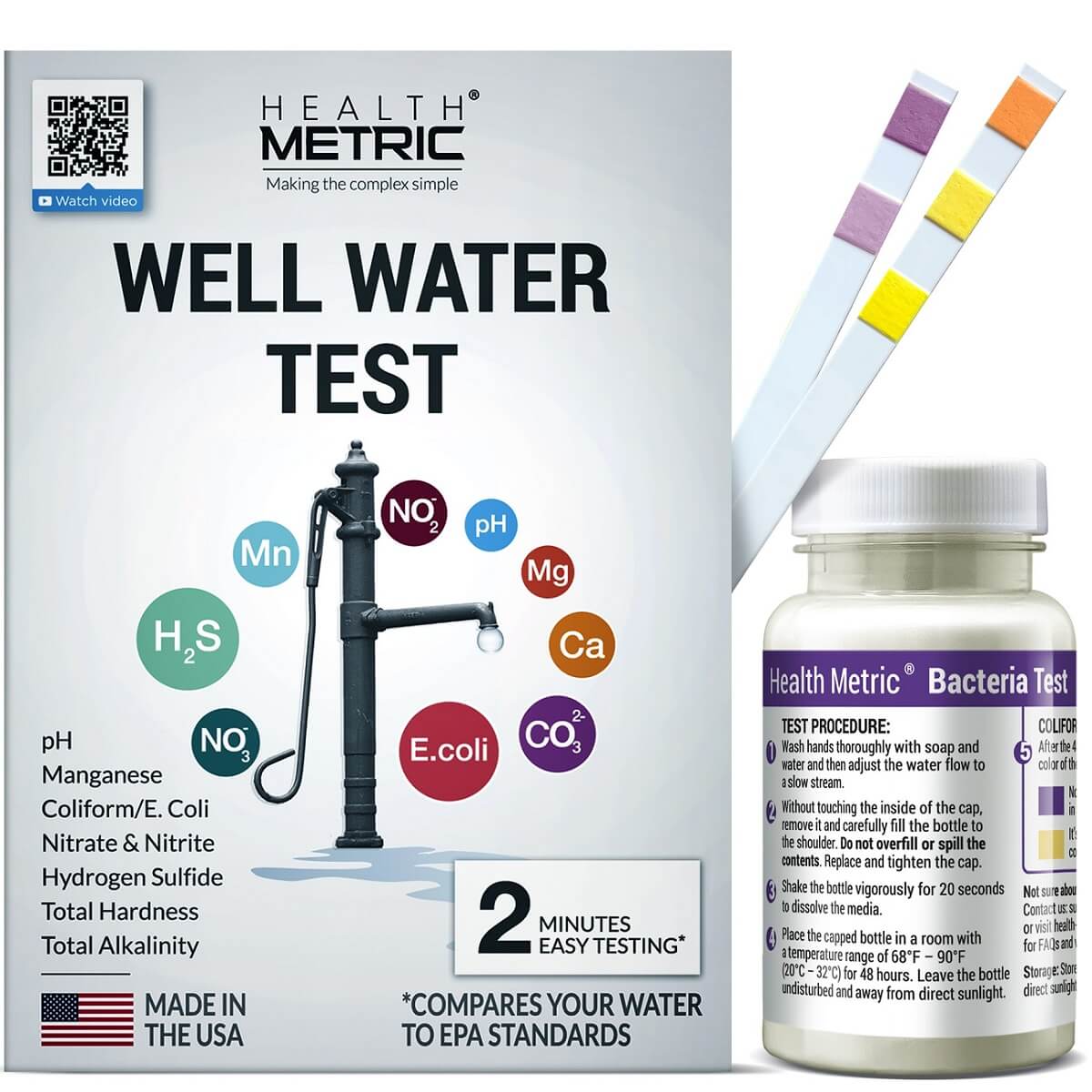Some Of Well Water Testing
Table of ContentsWell Water Testing for DummiesSome Known Facts About Well Water Testing.Some Known Details About Well Water Testing What Does Well Water Testing Mean?

Federal government firms do not monitor or control water top quality in private wells, and water screening is not needed by any federal or state policy. If you are just one of the 1. 7 million Georgians with an exclusive well, you are responsible for the top quality and safety of your well water.
Properly built and preserved water wells can supply years of hassle-free solution. Surface contaminants might enter the well if it is not correctly created and kept, and the well may at some point weaken or become harmed as it gets older. In enhancement, some groundwater naturally has one or more chemical compounds at degrees over the EPA's health-based requirements, called the Optimum Pollutant Degrees (MCLs)
Examine the water once annually for complete coliform bacteria, nitrates, complete dissolved solids and p, H degrees. If you presume other pollutants, you must evaluate for those. On the other hand, the top quality of water in faulty wells might change suddenly and continue to be undetected as the water might look, scent and taste the exact same.
Well Water Testing - An Overview
Minimum Screening Recommendations Well, Maintenance Yearly All geographical regions Nitrates (Overall Nitrate and Nitrate+Nitrite) Annual Yearly Fundamental Water Chemistry (see below) plus Alkalinity, Soluble Salts (or Complete Dissolved Solids), Nitrate, Chloride, Fluoride and Sulfate Originally and after that every 3 years p, H, Hardness, Aluminum Calcium, Chromium, Copper, Iron, Magnesium, Manganese and Zinc Annually after initialcomprehensive water chemistry Additional Evaluating Recommendations Confirmation of Prospective Contamination At the very least when and after that annual follow-up for:1) houses with pipes that pre dates the 1987 plumbing codes with copper piping with lead solders2) very old homes in which there are lead pipes3) homes with brass and/or chrome components (brass consists of 3-8% lead; chrome fixtures has lead) All geographicalregions At the very least as soon as and after that an annual follow-up Southern Coastal Level area below the "Autumn Line" on the, Georgia map A minimum of when and after that an annual follow-up Piedmont-Blue Ridge areas over the "Autumn Line" on the Georgia map Volatile and Semi-volatile Organic Compounds, Chemicals, Petroleum Hydrocarbons and Other Organics Not needed on a routine period; recommended just when contamination is believed. Well Water Testing.
Examples collected from a kitchen faucet would reflect the resource water residential or commercial properties plus any possible contamination from the well owner's water system system. Tasting at the wellhead for lead is not required, but tasting from the tap for lead would show if lead solder was utilized in the plumbing.

The main MCLs have actually been established at concentrations that give a wide margin of defense from hazardous wellness impacts for most individuals over a life time of drinking. Even though primary MCLs are enforceable standards for PWSs only, Recommended Site exclusive well owners might pick to comply with these requirements to shield themselves from the possible wellness danger of drinking contaminated water.
The Only Guide to Well Water Testing
The alcohol consumption water standard for nitrate is 10 ppm; try this site above this degree nitrate can have unfavorable effects on human wellness, specifically infants under the age of six months. Pesticides are substances used to protect against, ruin, push back, or alleviate parasites.
Cyanazine breaks down in the setting into various chemicals. A few of the malfunction products of cyanazine have actually been identified in Minnesota water. Chemical analysis in water examples can be costly and the usage of certain chemicals can vary throughout the state making it hard to know which chemical to assess.
Based upon this, we advise that you call the MDA prior to sampling your well for chemicals. The cumulative or compounding wellness threat connected with low degrees of numerous chemicals in alcohol consumption water is not well understood currently. Well Water Testing. Generally, prone populaces such as infants, youngsters, and pregnant/nursing females are at greatest risk
We are presently sampling wells for nitrate in territories with susceptible groundwater and that have significant row plant production for nitrate as component of the Territory Testing Program (TTP). Even more than 70,000 personal wells proprietors will be used nitrate screening in over 300 townships. Homeowners are provided a pesticide test via the Private Well Chemical Sampling (PWPS) Task if nitrate is discovered in their very first area testing example.
All about Well Water Testing
The MDH advises original site making use of a certified research laboratory to evaluate your water. To determine a laboratory to have your well water tested, most likely to Minnesota Division of Health (MDH) Qualified Environmental Laboratories. The personalized search tab on this page allows you to search for a lab that approves samples from private home owners.
When feasible, it is best to remove resources of contamination or change a contaminated water supply with a safer water as opposed to depend on a home water treatment unit. The price to evaluate for chemicals in water may go beyond the cost of a point-of-use home treatment system, such as reverse osmosis for drinking water.
If you make a decision to set up a home water therapy unit, the system (or units) you choose must be accredited and identified to decrease or remove the compound you are worried about. If there is more than one material you desire removed from your water, you might need to incorporate numerous treatment processes into one system.